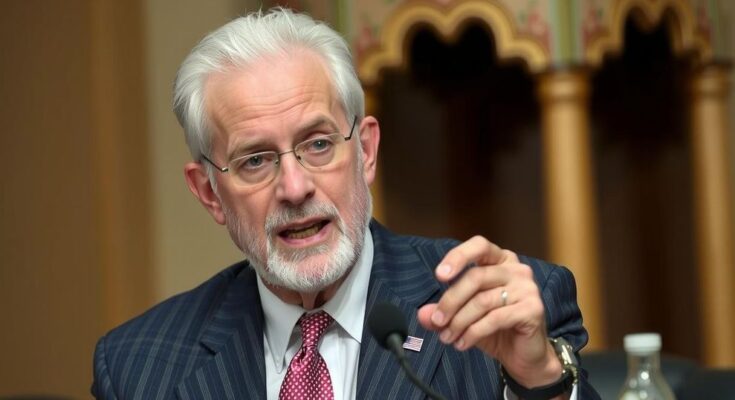President Joe Biden characterized the collapse of Bashar Assad’s government in Syria as a significant act of justice, while simultaneously acknowledging the risks involved for the region. The U.S. is actively monitoring the situation, particularly regarding Assad’s potential retreat to Moscow amidst concerns over a shift in the Middle East’s power balance, influenced by international actors like Russia and Iran.
On December 8, 2024, President Joe Biden addressed the recent fall of Syrian President Bashar Assad, declaring it a “fundamental act of justice” after years of oppression. However, he recognized the precarious nature of this event, labeling it as a “moment of risk and uncertainty” for the Middle East. During a press briefing at the White House, Biden acknowledged ongoing reports regarding Assad’s possible flight to Moscow and emphasized that the U.S. remains vigilant in monitoring the situation.
Biden attributed Assad’s decline to the weakened influence of Syria’s supporters, including Russia, Iran, and Hezbollah, asserting that their ability to uphold Assad’s power has diminished. He noted that this shift significantly alters the balance of power in the region. Meanwhile, President-elect Donald Trump commented on the upheaval, indicating that Assad’s flight signifies a loss of support from Vladimir Putin and warning against U.S. military intervention in the conflict.
The recent developments in Syria come amidst a complex landscape marked by the Syrian civil war, which has persisted for over a decade and resulted in significant human and political turmoil. Under Assad’s leadership, the regime has faced numerous allegations of human rights violations and brutality against its citizens. The U.S. has maintained a military presence in Syria with the expressed purpose of combating the Islamic State group, while their stance towards Assad’s government has evolved throughout the course of the conflict. The involvement of various international players, including Russia and Iran, adds layers of complexity to the ongoing strife.
In summary, President Biden’s remarks regarding Assad’s fall underscore a critical turning point in the Syrian conflict, presenting both opportunity and peril. The Biden administration faces a dual challenge of navigating this precarious landscape while ensuring military actions are solely focused on eradicating terrorism. The situation remains dynamic, with implications that may resonate throughout the region and influence global geopolitics for the foreseeable future.
Original Source: apnews.com




